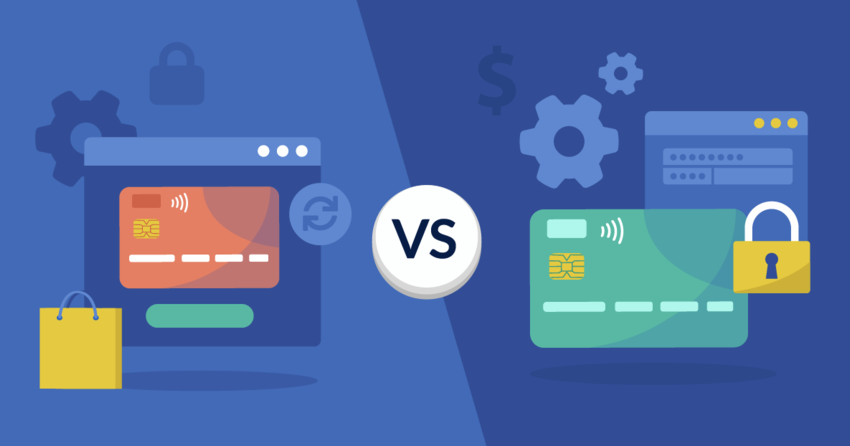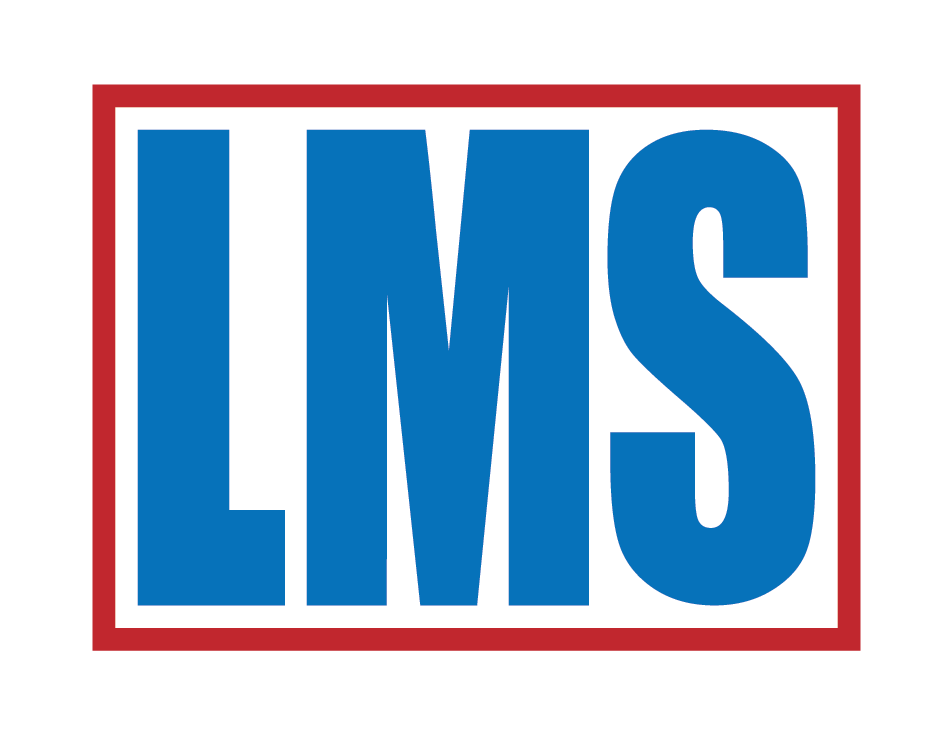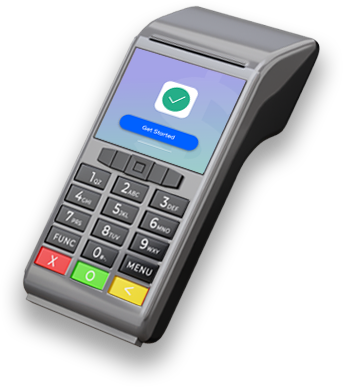Inside this Article
Explanation of Important Tech TermsWhat We Look For in the Best Credit Card Processing APIs1. Leaders Merchant Services: Low Rates With Multiple API Options2. Paysafe: Robust API & International Support3. Stax: Secure, Well-Documented API for High-Volume Businesses4. Chase Payment Solutions: A Variety of APIs for SaaS Companies & SMBs5. ProMerchant: Integrations With Trusted APIs for All Kinds of Transactions6. Flagship Merchant Services: Cheap API and High-Risk Merchant AccountsOther Notable Credit Card Processing APIsWhich Is the Best Credit Card Processing API?FAQ
Short on Time? These Are the Best Credit Card Processing APIs in 2025
- Leaders Merchant Services – Multiple APIs like Authorize.net and Google Pay API, paired with very low rates.
- ProMerchant – Integration with Authorize.net API plus a free virtual terminal for MOTO payments.
- Paysafe – Robust API for software companies and businesses selling high-ticket items globally.
Explanation of Important Tech Terms
API – An API (Application Programming Interface) is a set of rules and protocols that allows different software applications to communicate with each other, facilitating data exchange and functionality sharing. API call – An API call or API request is a request sent by a software application to an API to perform a specific action, such as retrieving data or triggering a function. SDK – An Software Development Kit (SDK) is a collection of software tools, libraries, and guidelines that developers use to create applications for a specific platform, framework, or hardware device more efficiently. GitHub repositories – GitHub repositories are online storage spaces where developers can store, manage, share, and track their code projects. Sandbox – A sandbox is a testing environment that isolates untested code changes and outright experimentation from the production environment, allowing developers to safely test new features or integrations without affecting the live application.What We Look For in the Best Credit Card Processing APIs
Not every developer kit and API library is built equal. That’s why I made sure every payment API on my list offers these features.- Comprehensive documentation. Having well-written and detailed documentation means you don’t have to spend hours trying to decipher API code, error responses, and access tokens.
- Wide range of supported languages. A well-built API should support multiple programming languages, regardless of the software that will connect to the API. The more languages that a payment processor’s developer kit supports, the better.
- Sandbox. A sandbox lets you test your API in a sandbox environment so you can make sure it works before you deploy it to your working environment. This means you’re not risking harming your customers’ e-commerce experience by testing your API on your live website.
- Security. Because the API will be handling sensitive financial data, the payment processor needs to ensure it is built with a security-first approach. This includes enforcing the use of hashing, SSL certificates, and developer authentication via API access tokens.
- PCI compliance support. Every API offered by a payment processor needs to be PCI-compliant. However, if you’re using the API to build checkouts that are hosted on your website, you’ll have to fill out a different questionnaire to ensure that you’ve met testing and security requirements. Your payment processor should offer support with this.
Free Card Reader

Our Score
Our Score
Best Credit Card Processor in 2025
Negotiable Low Credit Card Processing Rates
Monthly Fee:
$9
Transaction Fee:
From 0.15% + $0
Pricing Model:
Multiple options
Multiple options
This payment processor allows you to choose from two or more different pricing models for paying credit card processing fees. Each model will come with its own advantages and disadvantages, so make sure to consider your options carefully before deciding which is right for your business.
Features and Benefits
- Recurring billing. With Authorize.net’s API, you can easily create, update, and cancel subscriptions. You can also create subscriptions directly from existing customer profiles to save time and speed up service. The API allows you to access a list of up to 1,000 subscriptions in a single request, with filters for customized search results. This simplifies subscription management, especially for larger businesses.
- Transaction reporting. Transaction reporting through the Authorize.net API keeps you informed about your sales. The API offers comprehensive access to transaction history, enabling batch settlement, batch statistics access, and retrieval of transaction lists, among other operations.
- Pre-built Google Pay buttons. Though you’ll have to adhere to Google Pay’s branding standards to use its API, you can customize the Google Pay button that appears on your site. You can change text, language, color, and sizing before copying and pasting the code directly into your website.
- Payment card recognition. Google Pay’s API allows customers to use their device’s camera to capture their card details. This makes paying for your products or services quick and convenient and can lead to fewer abandoned carts, particularly because customers don’t need to have the Google Pay digital wallet for this to work.
| API availability | On request/ free or costs extra |
| Developer support |
|
| Standout API features |
|
| Transaction fees on cheapest plan with API | ~0.15% + $0 |
| Monthly subscription on cheapest plan with API | $9.00 |

Unsure which processor is best for your business?
Take this short quiz and get a tailor-made recommendation in seconds
2. Paysafe: Robust API & International Support




Our Score
Our Score
Top Global Payment Processor With Industry-Specific Merchant Accounts
Monthly Fee:
$7.95
Transaction Fee:
From 0.50% + $0.10
Pricing Model:
Multiple options
Multiple options
This payment processor allows you to choose from two or more different pricing models for paying credit card processing fees. Each model will come with its own advantages and disadvantages, so make sure to consider your options carefully before deciding which is right for your business.
Features and Benefits
- Embeddable PCI-compliant payment form. You can use the Paysafe JS API to create a custom payment form that integrates smoothly with your site. It ensures data security and PCI compliance, letting you focus on designing the user experience that matches your site’s aesthetics.
- Split payouts. This Paysafe API is crucial for businesses that must distribute payments across multiple accounts. If you manage different departments with separate ledgers, this API simplifies payment distribution, refunds/credits, and fund retrieval between accounts.
- Balance transfers between linked accounts. This API facilitates the seamless transfer of funds between linked merchant accounts. It’s particularly useful for businesses that need to issue credits to merchants, such as for promotional activities.
- Clover API. If you purchase Clover equipment through Paysafe, you’ll get access to the robust Clover API to customize your POS system with features for managing employees, inventory, payments, and more. Clover’s API also lets you create subscriptions and plans and offers e-commerce support.
| API availability | On request/ free or costs extra |
| Developer support |
|
| Standout API features |
|
| Transaction fees on cheapest plan with API | 0.99% + 25¢ (debit cards) |
| Monthly subscription on cheapest plan with API | $16.00 |


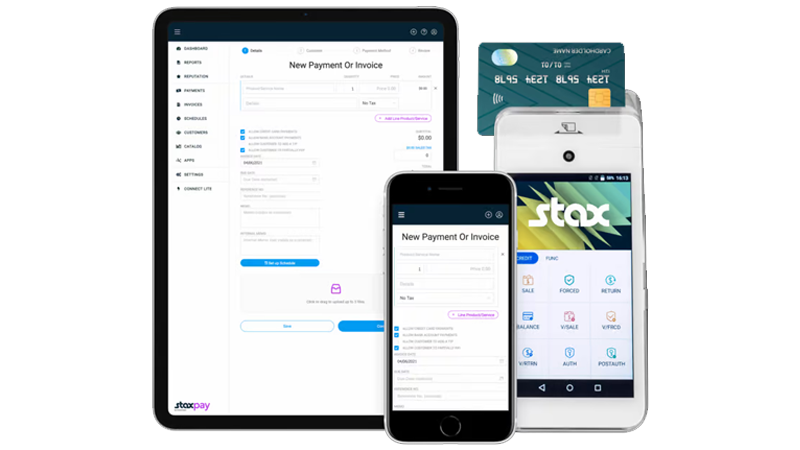

Our Score
Our Score
Save Up to 40% on Credit Card Processing Fees
Monthly Fee:
From $99
Transaction Fee:
From 8¢ + Interchange
Pricing Model:
Subscription
Subscription
With subscription-style pricing, you’ll pay a fixed monthly fee instead of a percentage-based markup on each credit and debit card transaction. While this will considerably reduce your per-transaction fees, you’ll typically still pay a small flat fee on each transaction. This amount is unaffected by the variable interchange fees charged by the different card networks (e.g. Visa, Mastercard), helping to keep your payment processing fees more predictable.
Features and Benefits
- Embeddable payment forms. Some customers will abandon their cart if they’re redirected to the webpage of a third-party gateway when it’s time to pay. Stax.js allows you to embed a payment form into your website to reduce cart abandonment and improve trust with your customers.
- Language agnostic. Stax’s API is designed to work with any language that can interact with REST API, enabling you to use this API with a wide variety of software suites.
- Custom integrations. You can create webhooks to send data from the Stax API (and vice versa) to third-party business tools like QuickBooks Online, MailChimp, and Zapier, among others.
- PCI compliance support. Merchants using self-hosted payment APIs usually have to undergo a lengthy assessment. With Stax, you’ll get access to a third-party PCI compliance dashboard that will alert you when your security assessment is due and guide you through the questionnaire.
| API availability | Growth plan (some capabilities) Pro and Ultimate plans (full access) |
| Developer support |
|
| Standout API features |
|
| Transaction fees on cheapest plan with API | 8¢ + interchange (in-person) |
| Monthly subscription on cheapest plan with API | $99.00 |
4. Chase Payment Solutions: A Variety of APIs for SaaS Companies & SMBs




Our Score
Our Score
Favorable Flat Rate Pricing & E-Commerce Features for SMEs
Monthly Fee:
$0
Transaction Fee:
From 2.6% + 10¢
Pricing Model:
Flat rate
Flat rate
Flat rate pricing simplifies your payment processing bill by charging the same percentage markup on every credit or debit card transaction you receive. The payment processor still pays the variable interchange fee set by the card network (e.g. Visa, Mastercard) on each transaction, but you always pay the same fixed rate regardless.
Features and Benefits
- Loyalty programs. For SMBs aiming to enhance customer loyalty, Chase’s Pay with Chase Points loyalty program has a wide appeal due to its large consumer base. You can enroll Chase cardholders into rewards programs through the Pay with Points APIs, let them see their points balances, and redeem their points to complete purchases.
- OptBlue. This program allows businesses to accept American Express transactions, which are typically more expensive, at competitive rates.
- Secure account data sharing. The Account Data Sharing APIs offer a secure method to connect your customers’ Chase accounts to your proprietary applications. This feature enables customers to quickly consent to sharing their account data, which is then protected through tokenization, ensuring data security while providing a custom-branded payment experience.
- Reliable screening. SaaS companies can benefit from Chase’s MATCH screening and receive a list of positive hits to offboard. MATCH screening helps in evaluating merchant risk by screening merchants against a comprehensive database of businesses with prior account terminations, providing the reasons for the terminations and offering an additional layer of security in making onboarding decisions.
| API availability | On request / free or costs extra |
| Developer support |
|
| Standout API features |
|
| Transaction fees on cheapest plan with API | 2.6% + 10¢ |
| Monthly subscription on cheapest plan with API | N/A |
5. ProMerchant: Integrations With Trusted APIs for All Kinds of Transactions




Our Score
Our Score
Interchange-Plus & Zero Cost Processing Plans Ideal for Restaurants and Retail
Monthly Fee:
$7.95
Transaction Fee:
From 3% + 10¢
Pricing Model:
Multiple options
Multiple options
This payment processor allows you to choose from two or more different pricing models for paying credit card processing fees. Each model will come with its own advantages and disadvantages, so make sure to consider your options carefully before deciding which is right for your business.
Features and Benefits
- Customize your terminal. Opting for the free Ingenico Desk 3500 gives you access to Ingenico’s cloud and on-terminal APIs, enabling you to build a feature-rich POS suited to your business’s needs. Standout on-terminal APIs include surcharging, asset tracking, and customer surveys.
- Free (custom-branded) mPOS. Payanywhere’s SDKs allow developers to integrate mPOS features into any iOS or Android device at no extra cost. You can also use Payanywhere’s APIs to embed payment processing features into your proprietary apps. This means you can offer secure payment processing under your branding without revealing that you’re using a third-party processor.
- Customer profiles. With Authorize.net’s API, you can store customer billing, payment, and shipping details. For about 25¢ per update, you can refresh credit card data, reducing payment interruptions.
- Simple checkout. With Authorize.net’s API, you can add a “Buy Now” button to your website for a frictionless payment experience.
| API Availability | On request/free or costs extra |
| Developer Support |
|
| Standout API Features |
|
| Transaction fees on cheapest plan with API | Custom |
| Monthly fee on cheapest plan with API | $7.95 |
6. Flagship Merchant Services: Cheap API and High-Risk Merchant Accounts


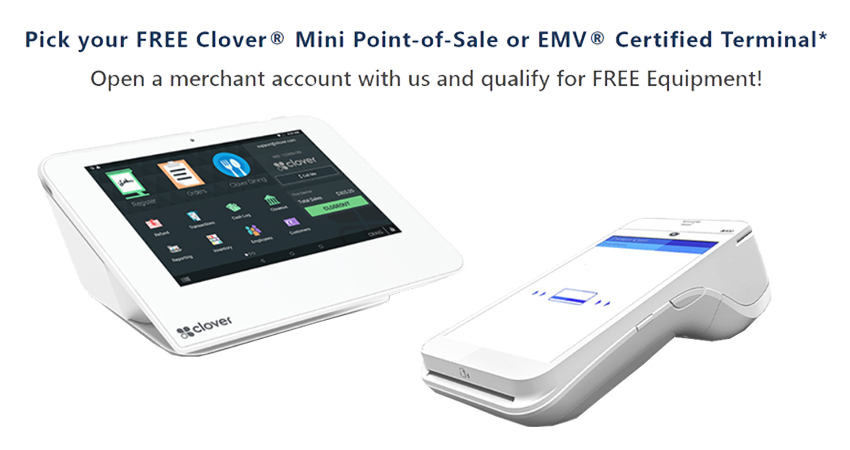

Our Score
Our Score
Fast Onboarding & Quick Payouts With Same-Day Funding
Monthly Fee:
From $15
Transaction Fee:
From 1.58% + 19¢
Pricing Model:
Multiple options
Multiple options
This payment processor allows you to choose from two or more different pricing models for paying credit card processing fees. Each model will come with its own advantages and disadvantages, so make sure to consider your options carefully before deciding which is right for your business.
Features and Benefits
- Easy invoicing. Authorize.net allows you to send email invoices using a “click to pay” link, along with reminders for unpaid invoices.
- Automatic recurring billing. Using Authorize.net’s API, you can set up monthly or custom automatic billing monthly. This removes the need to re-enter customer information and ensures you always get paid on time, boosting your cash flow.
- Manage customers, employees, and inventory. Efficiently create, update, and manage customer profiles with Clover’s API. You can also create employee profiles and assign them shifts and orders. For inventory management, Clover’s APIs enable you to add inventory items, create item groups, and assign tags and modifiers, among other capabilities.
- Accept gift cards. Clover’s API makes it easy to process both physical and virtual gift cards, reload them, and view balances.
| API availability | On request |
| Developer support |
|
| Standout API features |
|
| Transaction fees on cheapest plan with API | 1.58% + 19¢ (in person) |
| Monthly subscription on cheapest plan with API | $7.95 |
Other Notable Credit Card Processing APIs
7. Payment Depot
Payment Depot offers third-party APIs such as the Authorize.net payment gateway and virtual terminal, as well as popular shopping carts and e-commerce platforms. Its API toolkit allows you to efficiently manage payments on your website, through mobile devices, or at physical locations, ensuring a smooth customer experience and streamlined operations. It’s important to note that Payment Depot works only with high-volume small businesses processing at least $8,000 in card sales per month. If your business processes a high volume of transactions, you could see significant savings with its flat monthly subscription starting at $0. But it might prove expensive for small, low-volume businesses. Additionally, the processor doesn’t work with high-risk merchants.8. Square
You can use Square’s proprietary APIs to build versatile credit card processing solutions, including online, mobile, and in-person commerce. You can leverage Square’s extensive developer toolkit to meet unique business needs with white-label payment solutions. Whether customizing Square for your use, publishing in the Square App Marketplace, or collaborating with Square sellers, its comprehensive platform supports many functionalities. However, Square’s lack of a thorough vetting process may result in sudden account terminations, particularly for high-risk merchants. Additionally, you may encounter challenges reaching customer support after account deactivation and experience funds being held for months, posing operational and cash flow risks.Which Is the Best Credit Card Processing API?
If you want to build custom e-commerce features, you’re going to need a well-documented and comprehensive credit card processing API that you can easily integrate with your current e-commerce solutions. Leaders Merchant Services (LMS) is the best choice for most small businesses, including those processing a lower volume of card sales. It offers some of the industry’s lowest interchange-plus pricing, and you can negotiate your rates and tailor your plan. While LMS charges a fee for using Authorize.net’s API, you can use Google Pay’s API for free, which is a great way to keep your costs down. If your business is growing and you’re expanding into international markets, I recommend Paysafe. This processor makes it easy to accept multiple currencies and payment methods. You can integrate many of its 250+ supported payment methods through a single endpoint. Software companies aiming to create white-labeled payment solutions and small businesses selling high-value items seeking secure and sophisticated payment experiences can benefit from Paysafe’s robust proprietary APIs. ProMerchant is a great option for businesses that operate both in-person and online. It offers integration with the trusted Authorize.net API, which provides access to additional security features. It also provides a virtual terminal through Authorize.net and Payments Hub at no extra cost. Additionally, you’ll receive free POS hardware to support your in-person operations. The hardware brands that ProMerchant works with, like Ingenico and Payanywhere, offer additional APIs to customize your POS system.Keep scrolling for a quick comparison of the best payment APIs.
| Best Feature | Best For | Monthly fee on cheapest plan with API | Transaction fees on cheapest plan with API | ||
|---|---|---|---|---|---|
| Leaders Merchant Services | API solutions through Authorize.net or Google Pay | Budget-conscious businesses that only want to pay for the features they need | $9.00 | ~0.15% + $0 | |
| ProMerchant | Integration with the trusted Authorize.net API and a free virtual terminal | Businesses that process all kinds of transactions (in-person, online, MOTO) | $7.95 | Custom | |
| Paysafe | Robust API covering white labeling, 250+ payment methods and multiple currencies along with processing support in 120+ markets | Software companies and businesses selling high-value items internationally | $16.00 | 0.99% + 25¢ (debit cards) | |
| Stax | Fully-documented API with built-in security features | High-volume businesses that need secure custom payment solutions for websites and mobile apps | $99.00 | 8¢ + interchange (in-person) | |
| Flagship Merchant Services | Negotiable rates with affordable access to Authorize.net | Businesses that are happy to negotiate for a custom payment solution | $7.95 | 1.58% + 19¢ (in person) | |
| Chase Payment Solutions | A proprietary API for SaaS companies and SMBs and next-day payouts as standard | SaaS companies and SMBs | N/A | 2.6% + 10¢ |





